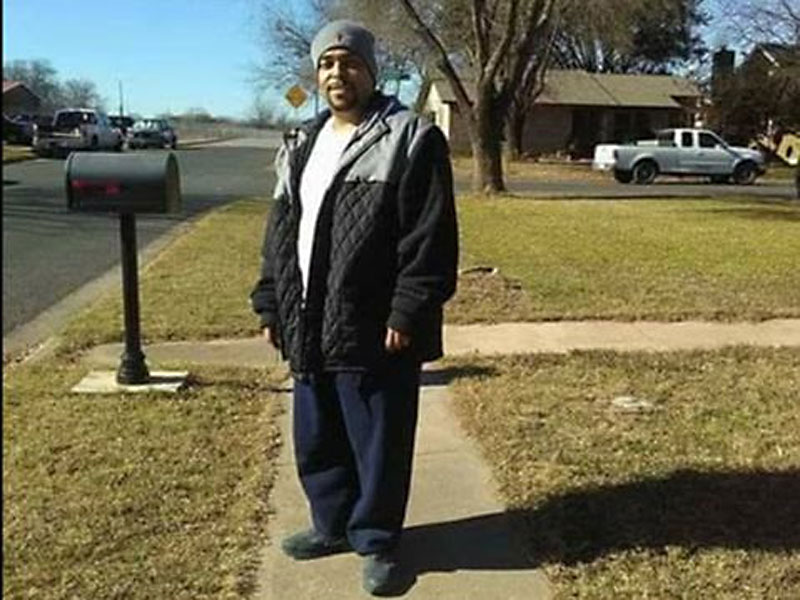APD Holds Back Info on Officer-Involved Shooting as Union Plays Hardball
Justice delayed for Michael Ramos
By Austin Sanders, Fri., May 15, 2020
Austin Police detectives did not find a gun in or around the vehicle Michael Ramos was in when two officers fired upon him, one fatally, on April 24, Chief Brian Manley confirmed on Monday, May 11. The 911 call that brought Officers Christopher Taylor and Mitchell Pieper to the apartment complex in Southeast Austin had indicated that two people were in a vehicle, possibly in the middle of a drug deal, and that one of them had a gun.
Manley said it took APD nearly three weeks to confirm the absence of a gun at the scene, despite witness video showing that Ramos was not holding a gun when he was first shot with nonlethal ammunition by Pieper, because investigators wanted to interview as many people at the scene as possible before that information was made public. "If we were to have come out and say what we found or didn't find in the vehicle," Manley said to reporters on Monday, "that may have influenced statements from other individuals."
For criminal justice advocates, the delay is yet another example of the APD's resistance to transparency. "It's fairly common practice for police to release any evidence exonerating officers," criminal justice reform advocate Chris Harris of Just Liberty told us. "It's really unfortunate that it's also standard practice for police to delay information when someone is unarmed."
Body camera footage from the many officers at the scene, including Taylor and Pieper, could also help fill in the picture of what happened that Friday evening, but on that front Manley is also holding back. At the Monday press conference, Manley – who has sole authority on whether and when to release the footage – said he would not do so yet to "respect" a motion filed in district court by attorneys representing Taylor.
Attorneys Ken Ervin and Douglas O'Connell submitted a petition on April 29 requesting the court prohibit the release of any evidence from the investigation into the shooting, because doing so "will inevitably harm Officer Taylor's right to a fair trial by a neutral and impartial jury," according to the filing. That's even though Travis County District Attorney Margaret Moore has not yet asked a grand jury to look at the shooting, a prerequisite to any prosecution. Both Moore and Manley have said they support releasing the body camera footage.
Rebecca Webber, who chairs the city's Public Safety Commission, said she has not seen a motion like this filed in the nearly 10 years she has studied police misconduct cas-es in Austin. Instead, Webber, who is now representing Ramos' mother, Brenda, said, "It sure seems like [Taylor's] attorneys are expecting a murder indictment." As the Chronicle went to press Wednesday, May 13, the attorneys announced the withdrawal of their motion but repeated their demand that Manley withhold the video.
At a City Council Judicial Committee meeting held Monday, Manley announced that the department's new body cam policy, modeled after one in Los Angeles, would allow the release of footage of shootings, use-of-force cases that result in serious injury, in-custody deaths, or other incidents approved by the chief, within 60 days. If that timeline cannot be met, the chief would issue a memo explaining why on the 45th day. Late Wednesday, APD issued a statement indicating it would release the Ramos video in line with this policy.
An arbitration ruling handed down last week against the department shows why even Manley's gestures toward transparency may make little difference. Back in 2018, body cam footage clearly showed officers Donald Petraitis and Robert Pfaff aiming their weapons at Quentin Perkins, who is Black, and who was on his knees with his hands in the air; Pfaff eventually tased Perkins. The two officers were fired by Manley for making false claims in their report of the incident, contradicted by the footage, and the city has since reached a settlement with Perkins.
The officers contested their firings under civil service rules, and LeRoy R. Bartman, the arbiter in the hearing (in which the officers were also represented by Ervin and O'Connell) ruled that "the mere fact that the chief did not believe Officers Pfaff and Petraitis is not sufficient on its own to meet te city's burden of proof." Bartman, who has a history of issuing controversial rulings involving disciplined police officers, concluded that discrepancies between the reports and the video reflected mere lapses in memory.
The Austin Police Association, which disagreed with Manley's initial firing of the officers, feels vindicated. Pfaff and Petraitis are cleared to return to duty without reassignment and with full back pay, and the department must completely expunge the incident from their records. "These officers, the entire time, have said they didn't do anything wrong," APA President Ken Casaday told us. "We believed them then, and are glad [Bartman] did too."
Harris is alarmed by the ruling. "It puts people at risk, because these officers not only unjustifiably tased Quentin Perkins, they colluded to lie about it. Now the arbiter is basically saying they shouldn't be punished at all." Harris added that a portion of Bartman's ruling that justified the use of force against Perkins, in part, because the officers could not see his arms or hands in the dark "could pose a risk to Black people in Austin ... Police could use force brutally against any Black person at night and then argue they just couldn't see if they were a threat or not."
Got something to say on the subject? Send a letter to the editor.










